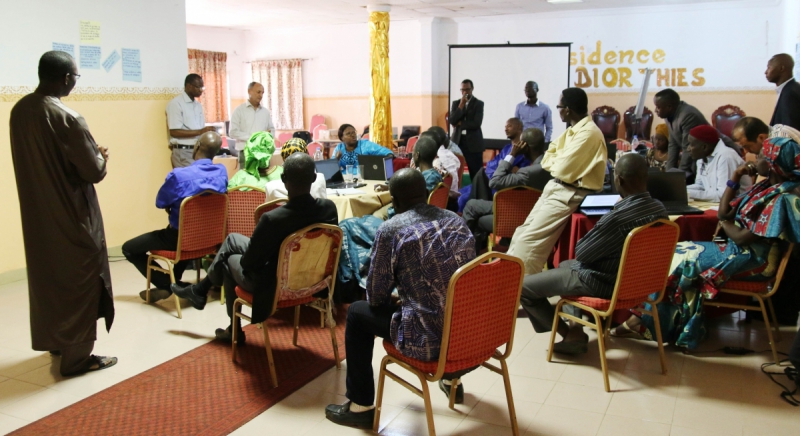Identifying the Obstacles to the Operationalization of Reforms in Senegal

Approximately forty Senegalese vocational training players met in Thiès between May 30 and June 3, to participate in a workshop for the in-depth diagnosis of obstacles to the operationalization of renewed vocational training policy.
In the name of the entire vocational training system, the Senegalese Ministry of Vocational Training, Apprenticeship and Handicrafts (MFPAA) signed a partnership framework agreement with the International Institute for Educational Planning’s Pôle de Dakar on May 23, 2016, to materialize their collaboration in the context of the support provided by the Pôle’s Platform of Expertise in Vocational Training (PEFOP), with the financial support of the Agence Française de Développement (AFD).
The first stages of this collaboration aim to identify and analyze the obstacles to the implementation of the vocational education policy in order to carry out an appropriate diagnosis of the sector. Following this diagnosis, targeted actions will be defined within a Programme Contributing to the Operationalization of the Reform (PROCOR), to be implemented over three years. On the basis of a preliminary diagnosis performed throughout May, the IIEP-Pôle de Dakar’s team and the MFPAA’s Research and Planning Unit (CEP) proposed that players from diverse sectors (governmental, private and social) gathered in Thiès conduct an in-depth analysis of the causes of the identified obstacles.
Since 2000, Senegal has initiated the reform of its technical and vocational training system. In this perspective, M. Siré Bâ, First Technical Advisor at the Ministry of Vocational Training, Apprenticeship and Handicrafts and PEFOP focal point, underlined the relevance of PEFOP’s five strategic axes, that perfectly match the direction of the reforms initiated by Senegal.
To identify and analyze the obstacles to lift, the IIEP-Pôle de Dakar experts helped the collective exchange between participants through the organization of thematic focus-groups along the lines of PEFOP’s strategic axes. M. El Hadji Saliou Ngom, Coordinator of MFPAA’s CEP, expressed his satisfaction with the approach adopted: “Relevance is often found in simplicity. And this is the case with the PEFOP approach that can be summarized in three steps: 1. What are the different problems we face? 2. Which players can solve these problems? 3. What are these actors’ needs? We have realized that there are many problems that we thought were obstacles, but that in truth are not, because the problems had been misnamed. And as the adagio goes: a problem clearly identified is half solved! Here, PEFOP has enabled us to better master the problems we face.” In this perspective, Mbaye Sar, President of the National Confederation of Senegal Employers’ (CNES) training and employment commission, indicated that the approach used by PEFOP is promising and that “for the first time it is not about boasting success, but about seeking to hunt down problems and obstacles.”
In a nutshell, this type of workshop is the ideal place to help concrete examples of obstacles to emerge, such as players’ reciprocal misconceptions about each other, that hinder the development of public-private partnerships. In the view of participants, the dynamic created during these days of focus-groups and the involvement of all of Senegal’s vocational training players forebode promising outcomes from the next stages of the process.

